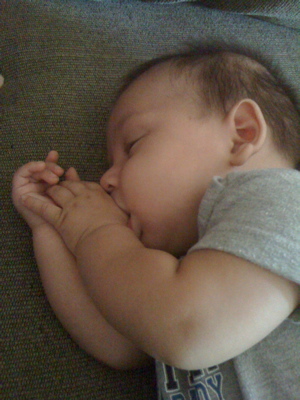One-on-One Time with Your Child
 Since the addition of our third child, the amount of one-on-one time with my children has decreased quite a bit. Over the summer I have tried very hard to find time to spend with each child one-on-one. I’ve been amazed at how short spurts of one-on-one time with my children have really deepened my relationships with them. My children are so little, but the simplest forms of quality time have really meant a lot to them and to me. This summer, I have taken advantage of having a very wonderful, reliable babysitter. My children have a TON of doctor’s visits and I have strived to have a sitter watch my other two children during one of my children’s appointments so I could focus on them during that time (and so my other children didn’t have to hang out at a boring doctor’s office). I’ve taken my child out for lunch or ice cream or a playground trip after the appointment so we could do something fun together. This has been a great opportunity for me to spend some quality one-on-one time with my children. I’ve also let the baby stay up a little later then her big brother and sister since she tends to be the least demanding of my three during the day. My oldest child rarely naps, so before she has a rest time, her and I spend some one-on-one time together after I lay down the younger two kids for their naps. It requires a little creativity and discipline to find time to spend one-on-one with each of my children, but we are all the better for it when I make the time for them.
Since the addition of our third child, the amount of one-on-one time with my children has decreased quite a bit. Over the summer I have tried very hard to find time to spend with each child one-on-one. I’ve been amazed at how short spurts of one-on-one time with my children have really deepened my relationships with them. My children are so little, but the simplest forms of quality time have really meant a lot to them and to me. This summer, I have taken advantage of having a very wonderful, reliable babysitter. My children have a TON of doctor’s visits and I have strived to have a sitter watch my other two children during one of my children’s appointments so I could focus on them during that time (and so my other children didn’t have to hang out at a boring doctor’s office). I’ve taken my child out for lunch or ice cream or a playground trip after the appointment so we could do something fun together. This has been a great opportunity for me to spend some quality one-on-one time with my children. I’ve also let the baby stay up a little later then her big brother and sister since she tends to be the least demanding of my three during the day. My oldest child rarely naps, so before she has a rest time, her and I spend some one-on-one time together after I lay down the younger two kids for their naps. It requires a little creativity and discipline to find time to spend one-on-one with each of my children, but we are all the better for it when I make the time for them.
Here are some ways (simple and elaborate) you can spend one-on-one time with your child
- Go on an overnight camping trip with your child (or rent a hotel room for just the two of you)
- Take your child with you on your run in the jogging stroller
- Have a movie date
- Feed ducks at the lake
- Surprise your child by showing up at their school to eat lunch with them
- Sign up to help with your child’s next school field trip
- Let your child stay up later than his/her siblings to spend some special time with Mommy and/or Daddy
- Let your early bird climb into your bed when they wake up and have some snuggle time with him or her
- When your son or daughter asks if they can go with you when you leave to run errands, say “YES!!!”
- If your child has a doctor appointment, hire a sitter for the other children so you can use the time in the waiting room one-on-one with your child. And head out for ice cream afterward!
How have you found ways to spend one-on-one time with your child?
Share the fun: Email + Del.icio.us + Digg + Technorati








